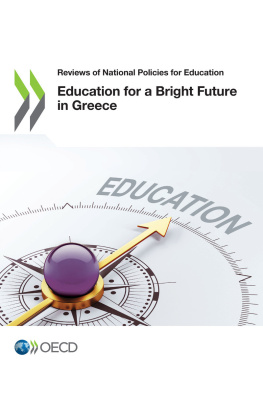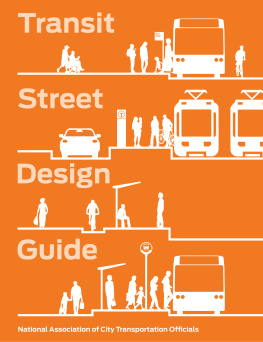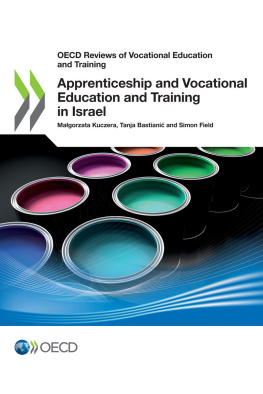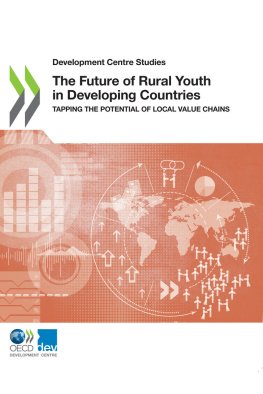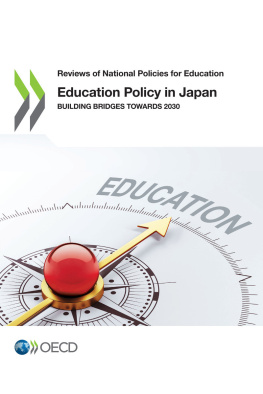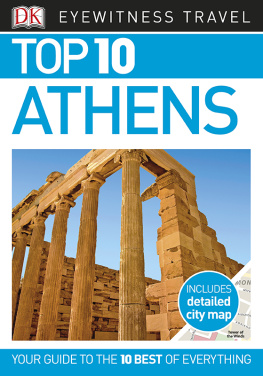coll. - Education for a bright future in Greece.
Here you can read online coll. - Education for a bright future in Greece. full text of the book (entire story) in english for free. Download pdf and epub, get meaning, cover and reviews about this ebook. City: Greece., year: 2018, publisher: OECD, genre: Politics. Description of the work, (preface) as well as reviews are available. Best literature library LitArk.com created for fans of good reading and offers a wide selection of genres:
Romance novel
Science fiction
Adventure
Detective
Science
History
Home and family
Prose
Art
Politics
Computer
Non-fiction
Religion
Business
Children
Humor
Choose a favorite category and find really read worthwhile books. Enjoy immersion in the world of imagination, feel the emotions of the characters or learn something new for yourself, make an fascinating discovery.
Education for a bright future in Greece.: summary, description and annotation
We offer to read an annotation, description, summary or preface (depends on what the author of the book "Education for a bright future in Greece." wrote himself). If you haven't found the necessary information about the book — write in the comments, we will try to find it.
coll.: author's other books
Who wrote Education for a bright future in Greece.? Find out the surname, the name of the author of the book and a list of all author's works by series.
Education for a bright future in Greece. — read online for free the complete book (whole text) full work
Below is the text of the book, divided by pages. System saving the place of the last page read, allows you to conveniently read the book "Education for a bright future in Greece." online for free, without having to search again every time where you left off. Put a bookmark, and you can go to the page where you finished reading at any time.
Font size:
Interval:
Bookmark:
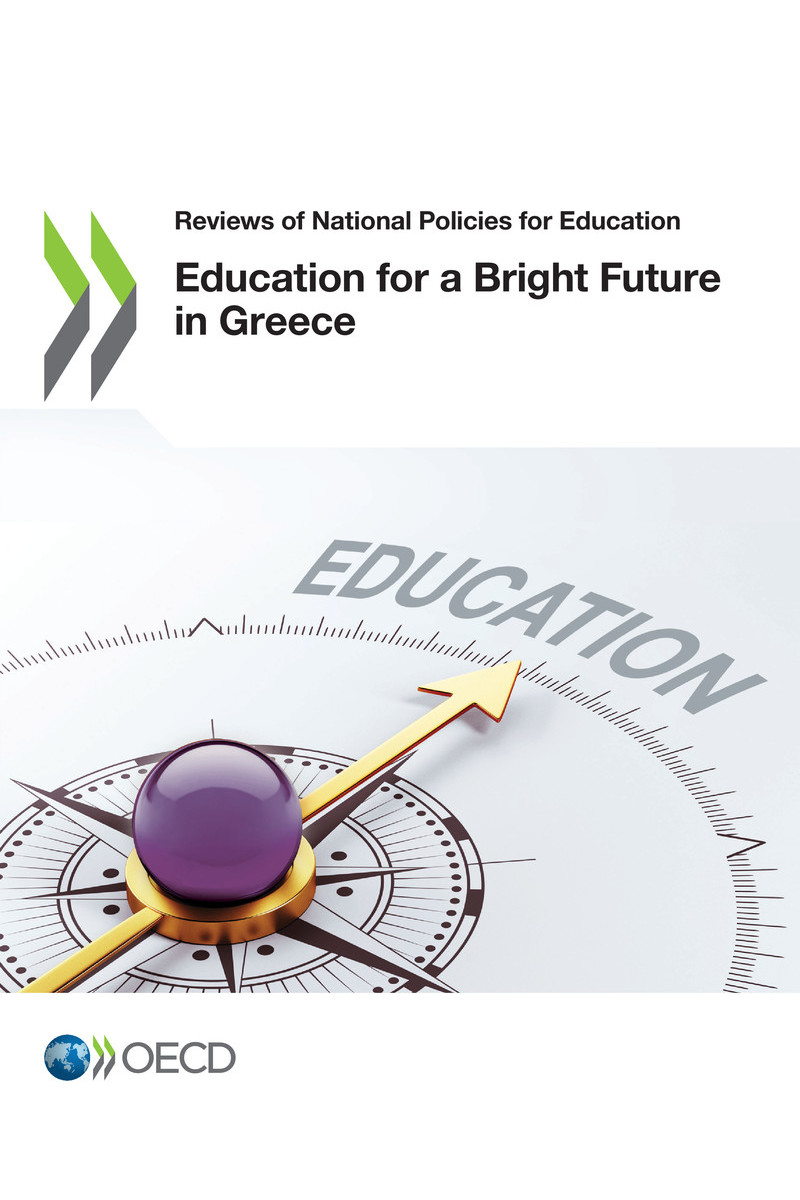
OECD (2018), Education for a Bright Future in Greece , Reviews of National Policies for Education, OECD Publishing, Paris.
http://dx.doi.org/10.1787/9789264298750-en
Countries across the OECD and beyond are implementing reforms to build education systems that combine excellence with equity. They are aiming to go beyond traditional skills and to help students develop a new set of skills for a more challenging, digital and multicultural world. Today, education systems should focus on nurturing new values, self-awareness, sensitivity and a better understanding of the need to build a more human world. They should also empower students with new competencies to be able to tackle change, to develop and use new technologies, to take on jobs that may not even exist at present and to thrive in a highly interconnected world. At the same time, it is crucial to focus on the development of social, emotional and critical thinking, team work, openness, empathy, tolerance and intercultural understanding in order to build democratic and respectful societies. These are some of the complex challenges faced by many countries and by Greece in particular.
This is a foundational moment for Greece. Emerging from a severe economic and social crisis that has greatly affected its economy, society and education system, it has engaged in a number of important reforms to re-establish the conditions for its education system to thrive. In this context, the OECD was requested by the Government of Greece to pursue an Education Review with the aim of identifying key challenges in the education system and putting forward recommendations to effectively tackle them.
OECD analysis recognises that there are several encouraging factors underpinning the Greek education system today. Education is a priority in Greece. Powered by a qualified and well-engaged teacher workforce, educational attainment rates are high in upper secondary and tertiary education, and students are highly motivated to study in schools and value their teachers. Building on these strengths, Greece has recently taken a range of actions towards educational improvement, with initiatives such as all-day schools, the new database of school indicators, and the introduction of school self-evaluation mechanisms. There is also a clear national commitment to achieving greater equity in educational provision and student outcomes.
Despite these positive factors, significant challenges persist. Results from comparative data such as the OECD Programme for International Students Assessment (PISA), show that the performance of 15-year-old students in reading, mathematics and science has not been improving and remains below the OECD average. The basic skills of adults in Greece are also lower than average, as measured in the Survey of Adult Skills (from the OECD Programme for International Assessment of Adult Competencies (PIAAC)). Other more structural challenges include a highly centralised system, a lack of comparable educational funding data and a lack of consensus on the best approach to manage the systems way out from the constraints imposed by the economic crisis.
In addition, the economic and social conditions remain difficult. Public educational expenditure has not increased during the years of the crisis, and low resourced schools have up to 14% of teachers with temporary contracts, an increasingly diverse student body, including high levels of child poverty and a larger proportion of migrant and refugee students.
Education for a Bright Future in Greece provides an in-depth analysis of the context and the underlying policy issues. The aim is to help the Greek government address some of the key questions that need to be answered to strengthen the education system. For example:
How can the governance and funding of the education system be more effective? How can school units become schools with more professional autonomy and support? How can the current appointment of temporary teachers be solved in order to ensure stability in schools?
How can Greek students be ensured a high quality public education and not necessarily need to attend shadow education? How can refugees and migrants be better integrated into schools?
How can schools, the work of their teachers and school leaders be best supported in terms of workforce management and professional learning opportunities? What type of evaluation and assessment framework can underpin a nascent accountability culture?
What are the pre-conditions for tertiary education to be more effective? How to provide greater autonomy to tertiary education institutions while having accountability for outcomes?
To address some of these and other questions, the study highlights the importance of, providing greater autonomy and stronger roles to school principals, as well as to local and regional authorities; maintaining a strong focus on educators professionalism, including the recruitment, development and retention of excellent teachers and leaders; developing a shared vision with the tertiary education sector to further support its development; communicating clear education policy goals, and building public perceptions and support for these goals; and continuing to build the institutions and infrastructure which support educational improvement, among other actions.
I hope that this analysis and recommendations, can contribute towards enriching the debate to support Greece in the implementation of its education reforms and help build a stronger, more inclusive and more effective education system that can contribute to a brighter future in Greece.
Font size:
Interval:
Bookmark:
Similar books «Education for a bright future in Greece.»
Look at similar books to Education for a bright future in Greece.. We have selected literature similar in name and meaning in the hope of providing readers with more options to find new, interesting, not yet read works.
Discussion, reviews of the book Education for a bright future in Greece. and just readers' own opinions. Leave your comments, write what you think about the work, its meaning or the main characters. Specify what exactly you liked and what you didn't like, and why you think so.

